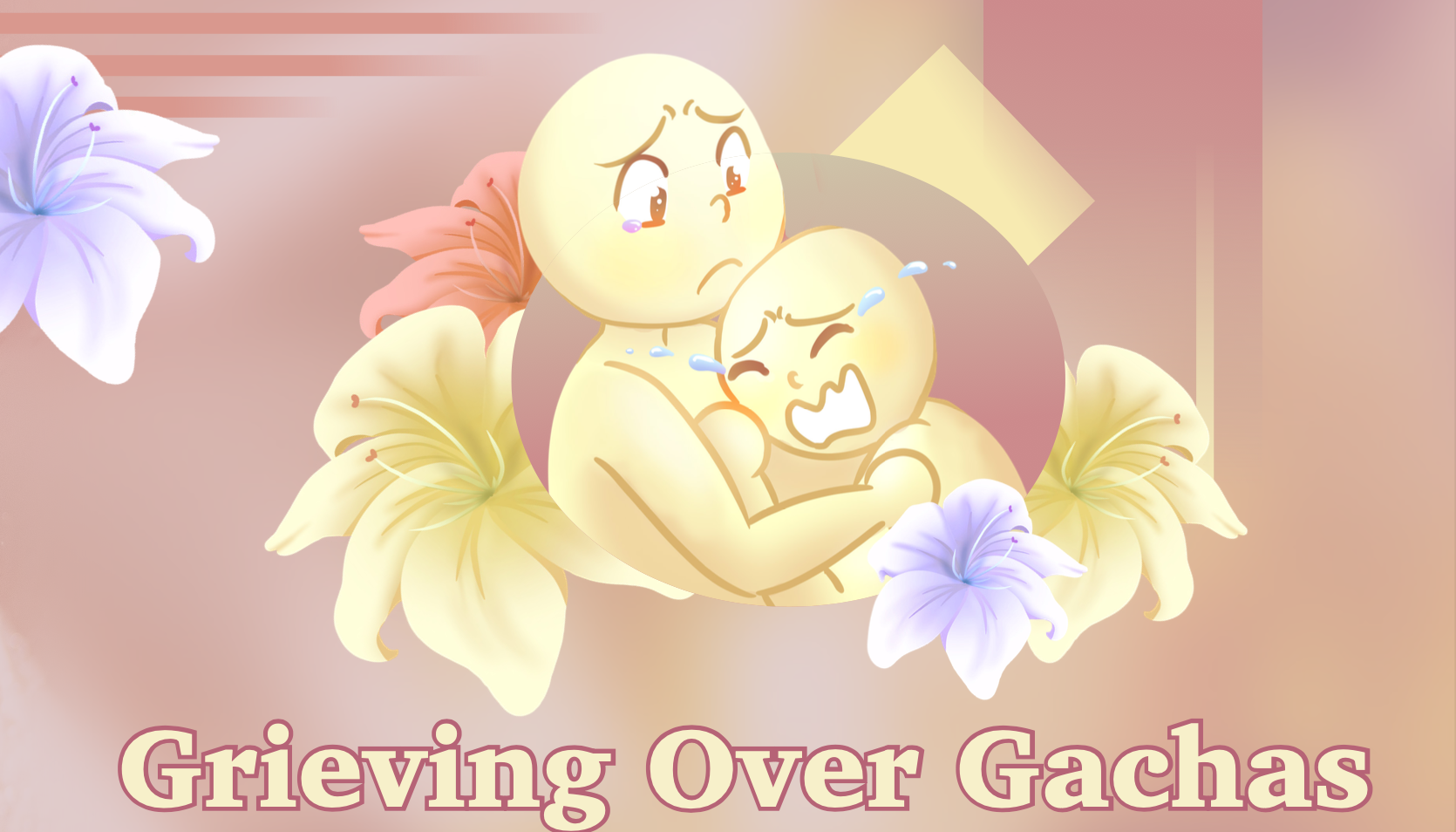
Much like the way our ancient ancestor Tiktaalik took its first steps on land 375 million years ago, gaming, too, has evolved in many ways. Perhaps this isn’t a one-to-one comparison since one of these led to the existence of all land creatures and another led to the creation of the Wii U, but just bear with me here. The gaming industry is an unstoppable force that has yet to meet an immovable object. New consoles are constantly being released, graphics are always being improved, and the average length of video games has nearly tripled since the 2000’s. One branch of the gaming industry has made leaps and bounds in the last couple of decades: mobile gaming. In particular, I’d like to focus on the explosive popularity of gacha games and why we’ve potentially dug ourselves into a hole as consumers because of them.
Gacha games — named after gachapon machines which are popular in Japan — are conceptually similar to their namesake. You use currency to draw several prizes from an available pool, and the prizes you receive are based entirely on chance. Gacha games can have any type of gameplay, but their commonality is the presence of in-game currency that can be used to collect characters or items through the gacha. Combined with addictive gameplay loops, appealing character designs, and frequent events, this gives players an incentive to keep coming back for more. I should know: I’ve had an on-and-off love affair with these types of games for about eight years now.
This brings me to my overarching point… let’s talk about death! Particularly what to do when your favorite mobile game dies an unceremonious death, and you lose everything you put into it for however many years you played it.
The rise of the gacha is a somewhat recent phenomenon, and we as players are still navigating how to feel about it. There’s a lot to critique, certainly. I could go on about the apparent growing business model where the consumer doesn’t own anything outright, rather is given access to it by a corporation and as soon as that thing ceases to be profitable it can be removed at any time without explanation or compensation. Speaking from personal experience, I’ve watched six of my favorite mobile games get either discontinued or region-locked over the eight years I’ve been invested in mobile gaming, and it never gets easier. Titles like “Osomatsu-san Hesokuri Wars,” “Magia Record,” “Utapri Shining Live,” and not one but TWO “Love Live” games. Yes, I know they’re releasing a new one this year, and no, that doesn’t quell the rage I feel for missing the window to transfer my game data and losing all my UR Nico cards because of that. It’s not my fault I took a hiatus, I’m a busy guy! This might sound dramatic, but it really does feel like the end of a friendship. After it’s over, the only things you get to keep are your memories of it. That’s it. You can do nothing except occasionally say, “Ahh, remember when [insert game here] was still around? Good times,” whenever you’re reminded of its existence. You know what they say… ’tis better to have rolled in the gacha and lost than never to have rolled in the gacha at all.
Normally this wouldn’t be a big deal, but keep in mind the sheer number of resources some people invest in these games. Time, effort, money… all of it goes down the drain as soon as those servers go offline for good. It makes you wonder what the point of playing was if you were doomed to eventually lose everything from the very moment you logged on. We tend to presume that the things we love will be around forever, and sadly that’s just not the case. The very thing that makes gacha games viable, the servers that host them, are the reason why they can’t exist forever. Inevitably once a game starts losing steam, the company that owns it will shut down its servers and redirect those resources towards whatever will make them more revenue. It’s a sad reality and unfortunately, it’s extremely lucrative. The reason I mentioned earlier that we’ve potentially dug ourselves into a hole is because there’s hardly any incentive for corporations and developers to stop following this business model.
One such example, a mobile game published by Nintendo called “Dragalia Lost,” had a four-year lifespan from 2018 to 2022. It received mostly positive audience reviews and had a distinctive art style, engaging RPG-style gameplay, and frequent events and other new content to look forward to. Dragalia Lost was Nintendo’s only exclusively mobile property, meaning that apart from the game itself, there wasn’t any other way to get into the franchise. There were no animated series, no books or graphic novels, and no console games or spinoff properties. When the game abruptly announced that it would be discontinuing its services in 2022, the player base was shocked. Not just because the game appeared to be doing well, but because the game was the series. Once it disappeared, the entire franchise would be dead with little to no hope for revival. At the time of writing, there has been no announcement of a continuation of “Dragalia Lost.” The game is dead, and the public’s memories of it are slowly dying as well. It’s a disappointing tale that’s only becoming more common as time goes on.
Normally this would be the part of my tirade where I suggest what should be done about this, but honestly… I haven’t got much. I can’t think of many plausible solutions to this, especially since these solutions aren’t profit driven. One option is to exclusively develop offline games, i.e., games which don’t require a server to function. This could work in some cases, but not across the board. The appeal of many gacha games is that they constantly receive updates and new content to look forward to. Another idea is that mobile games could switch from online to offline as soon as publishers decide to pull the plug on their servers, but the ability to function as an offline game would have to be coded into the game’s script from the get-go. It’s possible, but the intricacies of the process are lost on me since I’m not a game developer.
All I can say at this point is that reality is depressing, and we should treasure the time we have with the things we love. As cheesy as that advice sounds and as salty as I am that some of my favorite mobile games met an early grave, I’m grateful that I was able to play them in the first place. Not only that, but they allowed me to meet new people and make several friends who shared the same passion for those games as I did! The games themselves may be long gone, but the connections I fostered because of them live on. Plus, there’s still a lot of enthusiasm out there for games that met an untimely end! I still see people on social media discussing and bonding over the things that kickstarted their friendships — people will occasionally host organized fandom events like zines (short for “fan magazines”), or themed weeks centered around creating art and fanfiction for specific series. Despite the dour overtones of my lengthy schpiel, all hope is not lost for these wayward gamers. Sometimes, being a gamer truly is about the friends we made along the way.

Comments